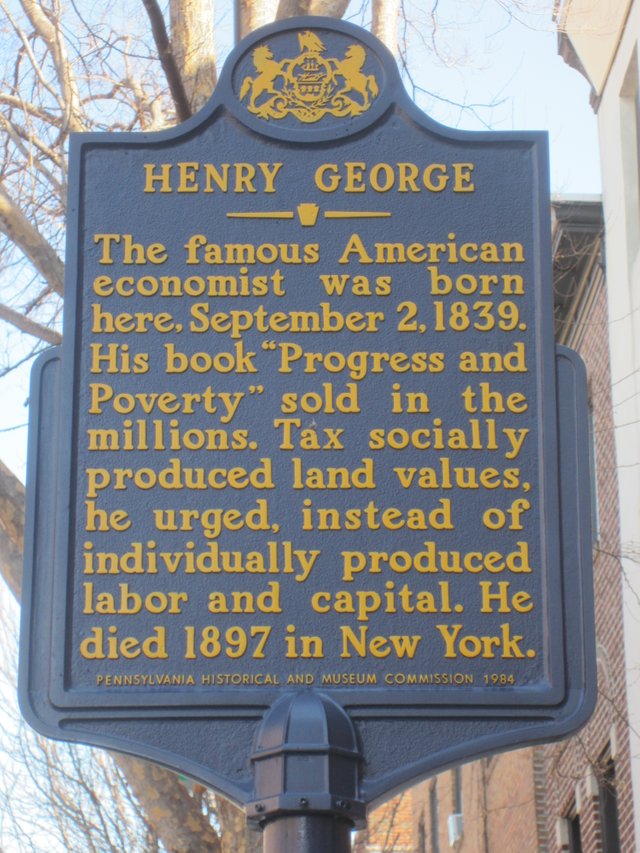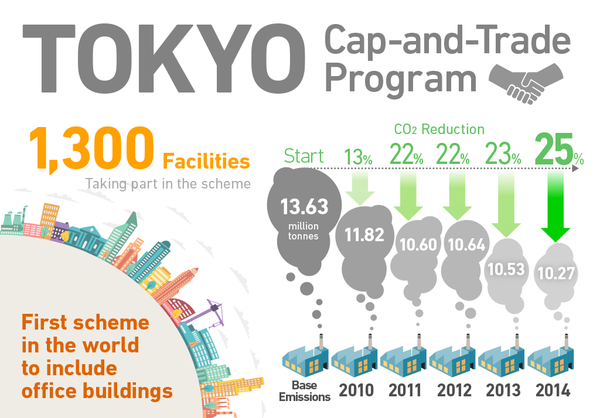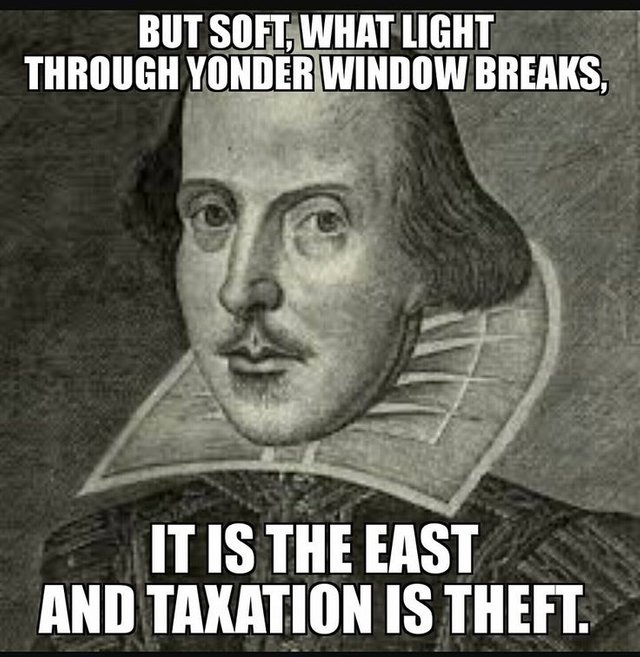When Taxation is Not Theft

Anarchists and libertarians are fond of asserting that "taxation is theft." However, I am of the conviction that only some forms of taxation constitute theft. A person is entitled to the product of their own labor, not to positive externalities generated by other people's labor. Not only are some forms of taxation not theft, but some taxes may be good in themselves.
Land Value Taxes
In a state of nature, there are no systems of property. There are no monetary systems, nor courts and police to enforce contracts. With the introduction of government (courts, law-enforcement, monetary systems), we get money and feudalistic/capitalistic property arrangements and we see the opportunity arise for one person to profit off of the labor of another. In a state of nature, any person can homestead any vacant piece of land, build upon it, plant and harvest crops upon it, and raise livestock thereon. With the emergence of "property rights" (really a set of legal privileges conferred by government), we see that things change significantly. Now, one person has the ability to monopolize land and charge another person for use. Previously, land-ownership was basically a matter of fact: I occupy this land and use it. Now, land-ownership is linked to a legal document or "title." This allows one person to own land that another person is using. We see the rise of rent, where one person taxes another person for the use of land. The proprietor is effectively a little monarch or king. The little monarchy of the private proprietor is predicated on the bigger monarchy of the king. It was the government that created this system of property which allowed the private-owners to monopolize land and tax others for its use.
Even if a person did happen to buy the land and thus ownership has some legitimacy, the value of the land, which sets rental price, is never the same as the purchase price. In reality, population growth tends to result in an ever-increasing price on land. If I buy a vacant lot, its value will increase as surrounding land is developed. If a local community develops and builds a road, a school, a grocery store, a hospital, etc., then the value of that lot will go up substantially. It is society that makes land valuable in the monetary sense. Thus arises externalities. The labor of your community—your neighbors and local government—generates value that makes it possible for you to sell your property at a higher price than what you paid for it. This is called a positive externality. Under natural law theory, a person is entitled to the product of their own labor. This is the theoretical justification for property in the first place. However, the system of property allows some people to profit off of other people's labor. At the same time, there can be negative externalities, where the actions of your neighbors or of your government cause the value of your land to decrease in value. Suppose that the owners of the other houses in your neighborhood allow them to fall into disrepair. Suddenly, the property values in your neighborhood drop, resulting in the value of your own property going down. Some people are positively affected by the actions of others, while others are negatively affected.

These positive and negative externalities aren't really a thing in a state of nature, where land is not bought or sold. These are injustices introduced by what Thomas Hodgskin called the "artificial right of property"—some people are positively or negatively affected by the privileges associated with private-ownership under a system of government with certain artificial rules governing land-ownership. Following a dialectical libertarian approach, I tend to view government interventions as acceptable if they are interventions that right (or lessen the wrongs) caused by government. For instance, if the government grants one company a monopoly on some necessary product, it is only fair for the government to also set an upper limit on the price that the company can charge. The justification for thesecondary intervention (setting a cap on price) being that it is intended to fix some of the harmful effects of the primary intervention (granting of monopoly), thereby making the economy more analogous to free-market conditions than it would be with fewer interventions. It seems, then, that dialectical libertarianism can provide a justification for geo-libertarianism and the ideas of Henry George. Geo-libertarians hold that the positive and negative externalities generated by property-ownership could be rectified with a system of land value tax or annual ground rent. The land value tax is designed to reduce or eliminate the externalities that result form property. Since classical liberal (libertarian) property theory, as espoused by John Locke, states that a person is entitled to the entire product of their own labor, geo-libertarians hold that income tax is tantamount to theft and that it would be better to tax economic rent. Land is a natural resource, which no man created through labor. Thus, a tax on land does not necessarily constitute theft. But since a person is entitled to anything that they produce themselves, any structures on the property that were either build by the owner or purchased with money acquired through labor would not be taxed. Thus, a land value tax is not a conventional property tax. Under land value tax, positive externalities would be taxed away by an increase in tax, whereas victims of negative externalities would be subsidized by a decrease in tax.

The land value tax proposal that I support is that of Thomas Paine, the American founding father, as espoused in his work Agrarian Justice. Two modern proponents of this proposal are Scott Santens and Martin Farley. Thomas Paine's proposal was to collect a land value tax and then use the revenue to fund a citizen's dividend. Thomas Paine preferred the term "ground-rent," but his proposal is essentially the same as Henry George's "land value tax." Another way of looking at land value tax is to say that it is not really a tax at all, but an annual ground rent. In this way of thinking, all land is actually communally owned and the private owner pays an annual ground rent to the community for the privilege of monopolizing a piece of land. Whether you call it "land value tax" or "annual ground rent," the policy is identical. However, when you conceive of it in this way—as ground-rent rather than tax—it makes sense to associate it with a citizen's dividend. The land would belong to the people, so the revenue from the land ought to belong to the people. The nation as a whole is the landlord and each citizen is entitled to an equal share of the rental payments. This model of a citizen's dividend funded by annual ground rent from publicly-owned land—which is basically equivalent to a universal basic income funded by land value tax—would help to eliminate externalities even more. This proposal would also virtually eliminate poverty.
Land value tax also has the benefit of preventing urban decay and solving the problem of gentrification. Instead of doing double-work here, I'm just going to give an extract from my article On Poverty, Gentrification, Addiction, & Homelessness.
Having poverty-stricken neighborhoods is bad, but gentrifying those neighborhoods in order to make them "better" is also bad. Land value tax (LVT) and universal basic income (UBI) are good ways of eliminating the problems on both ends. Suppose you implement a land-value-tax-plus-basic-income scheme in a neighborhood that is experiencing "revitalization." The LVT takes some of the wealth generated by the "revitalizing," and the UBI gives some of that wealth back to the people that are already living in the community, that way they aren't priced out of the neighborhood. The basic income also serves as a form of welfare and an economic stimulus. It alleviates or eliminates poverty. By giving the members of the community a share of the wealth generated by rising land prices in their neighborhood, it allows them to have more money to spend in their own community. Instead of being priced out of the neighborhood by gentrification, they'll be pulled up and rise out of poverty as the community becomes more prosperous. Maybe people will even spend some of that money to pursue an education, start their own businesses, or even to engage in charity work—all things that they weren't able to do previously due to poverty. Unlike gentrification (pricing out poor people and replacing them with higher income folks), basic income actually helps to eliminate poverty.
Land value tax encourages the best use of land, encouraging revitalization. Normally, a person buys a 30,000 dollar property, holds it for 10 years, only paying minimal property taxes (let's assume 300 dollar per year), and then sells it at the end of the period for a greatly inflated price. Even if the owner does not make any improvements, contributes nothing to the value, population growth and development in the surrounding area will drive up the price. Now the proprietor sells that property for 90,000 dollars. He makes a 57,000 dollar profit, without having contributed any labor and without having done anything to add value to the property. With a 6% land value tax, the situation changes. Let's assume he buys the 30,000 dollar property, holds it for 10 years and then sells. At 30,000 dollars, the property costs him 1,800 dollars a year to hold it out of use. After 5 years, assume the value increases to 50,000. The tax now rises to 3,000 dollars per year. After 7 years, the price rises to 70,000. The tax is now 4,200 per year. Finally, the value is 90,000 for the 9th and 10th year that the speculator holds it. The tax is 5,400 for those two years. Over those 10 years, he had to pay 30,000 dollars in taxes. (Compare that to the 3,000 dollars that a speculator might currently pay in taxes over the course of 10 years.) If he sells the house for 90,000 after the 10 years, then he gets exactly 30,000 back. He only gets what he originally contributed. Subtract the original price (30,000) plus the total tax (30,000) from the final price (90,000), and he's left with only the 30,000 dollars that he originally contributed. All of a sudden, holding land out of use, letting a building get worn down and allowing urban decay to occur, just because you suspect that the land itself might be worth something some day, just isn't profitable. Taxes cut into profits, which means that the land speculator is better off selling the property sooner, so that someone else can either live there or use the property for productive purposes. If the person in the example above had sold the property for 50,000 after 5 years, he would have made a decent profit of 11,000 dollars. Currently, a land speculator would never do such a thing when he could hold off on allowing revitalization for additional time in order to increase his profits upon sale. With land value tax, abandoned buildings wouldn't remain empty, they'd be quickly sold and put to good use, either as affordable housing or as businesses or bases for non-profits. The land value tax would induce revitalization, and the basic income associated with it would ensure that gentrification does not result from the revitalization. Land value tax discourages land speculation and prevents urban decay, it also encourages more New Urbanist style approaches to urban planning. (Imagine a city that is pedestrian friendly, where grocery stores are within walking distance of residences, with good public transit, fewer cars, and a greater sense of community and belonging—that's New Urbanism.)
It appears to me that a land value tax has certain benefits in itself. Not only is a land value tax better than income tax, it is actually better than no tax at all. Even if land value tax does not go to funding a citizen's dividend, it does lead to more affordable housing and benefit the poor. Currently, a poor person with bad credit or no credit must rent. The cost of renting is generally much higher than a mortgage on the same property would be. For instance, a property with a $400 per month mortgage payment can be expected to rent for $800 per month. Land value tax actually taxes away economic rent, making land speculation less profitable. The cost of housing for the poor would be greatly reduced as a result. The positive effects of land value tax far outweigh any negatives, making land value tax good in itself. It's not just better than other forms of taxation, it's better than no taxes at all.

Pigouvian Taxes
A Pigouvian tax is a tax on market activities that generate negative externalities or costs that are not included in the price. For instance, let's assume that a company burns coal as a part of its production process. Burning coal creates sulfur dioxide (SO2), which lowers the PH of water vapor in the atmosphere. Too much SO2 results in acid rain that can damage forests and crops and poison the soil. If the level of SO2 is high enough, the rain can even burn skin on contact. Again, to avoid double-work, here's an extract from my article Markets Are Not Perfect: Why We Should Consider Pigouvian Taxes, Socializing Insurance, and Nationalizing Healthcare:
In 1990, an amendment to the Clean Air Act was signed into law by George H. W. Bush. The amendment established cap and trade for sulfur dioxide (SO2), the leading cause of acid rain. SO2 from burning coal would reduce the PH of water vapor in the atmosphere, causing the rain to poison plants. The Acid Rain Program, established by the amendments, went into affect in 1995. Cap and trade led to a 40% reduction in SO2 emissions in 5 years. As a result of cap and trade for SO2 and other emissions associated with acid rain, acid rain is no longer an issue that people in America are accustomed to hearing about in the national news. If we adopted a cap and trade program aimed at combating global warming, such an approach could lead to drastic reductions in CO2 and other emissions that are associated with climate change. While cap and trade takes the form of a permit market, it is actually a Pigouvian tax on pollution.

By taxing emissions that pollute the environment, many countries have effectively reduced certain types of pollution to more tolerable levels. If we had allowed SO2 to go unchecked, acid rain would have kept getting worse, destroying crops and causing health problems, possibly even leading to famine and increased mortality from heart and lung disease. And SO2 emissions are not the only harmful emissions that have been reduced by Pigouvian taxes. These sort of taxes actually have the ability to make the world a better place, meaning that sometimes a Pigouvian tax can be a positive good in itself.
Pigouvian taxes were used in Ireland to encourage people to switch from plastic grocery bags to reusable, thereby cutting waste. A Pigouvian tax was used in London to reduce traffic congestion within the city. Such a tax could also be used to reduce other forms of pollution, like toxic waste that gets dumped into rivers.
Differential Taxes

It was Hilaire Belloc that go me interested in the idea of the differential tax.
"The principle of the Differential Tax is that a different proportion of taxation, as well as a different amount, may be applied to men in different circumstances. For instance, if you apply an income tax of zero to incomes under $2,000, of 5 per cent between $2,000 and $5,000 of 10 per cent between $5,000 and so on, that is a differential tax. Or again, if you charge an amount of $5 for taking out one license for a particular purpose, $15 for taking out two licenses, $50 for taking out three, and so on, you are applying a differential tax to licenses."(The Differential Tax)
Belloc adhered to the philosophy of distributism, which advocates widespread ownership of land and productive property. Consequently, he advocated the use of differential taxation in order to prohibit large concentrations of economic power.
"The ways in which Differential Tax can be used to re-establish private property in the mass of men are various, according to the form of evil attacked. One obvious and primary way is to establish a Differential Tax upon the passage of property by sale: make it easier for the poor man to buy and the rich man to sell. Such a principle, applied to agricultural land, has already had excellent effects on certain parts of Europe, where the soil had fallen into few hands. When large property buys up small, let the tax be heavy. When small property buys fragments of large property and so helps to divide up property, let the tax be light and at last non-existent.
"In the same way Differential Tax can help to eliminate gradually—and, what is more important, to check at source—the growth of exaggerated distributing centers, big departmental stores and chain stores. The State grants a license, for instance, for the sale of tobacco. It makes that license cheap for the small man who runs a tobacco store, and more and more expensive for the big store which only makes tobacco one of the items among the innumerable ones it sells. The State taxes the individual business such and such an amount. When a chain starts in several towns, or in many places of the same large town, let each store in that chain be taxed progressively higher as the number of the stores in the chain increases until, at a certain limit, the tax makes the growth of chain stores impossible.
"The same principle would apply to financial corporations, the tax falling in inverse proportion to the number of their bona fide members."(ibid.)
Such a tax would keep "too big to fail" organizations from coming into being. It would lead to an economy with many small businesses in place of large corporations.
What is in the best interest of consumers is not free markets, but competitive markets. A company can out-compete its rivals and put them all out of business, thereby establishing a monopoly. Or, a few companies can put most of their competitors out of business. After establishing a monopoly or oligopoly, there is no longer sufficient competition to force down prices or to incentivize companies to provide the best possible service. This was an important observations of Ordoliberalism, which held that government should try to "ensure that the free market produces results close to its theoretical potential."(Wikipedia) Large corporations have the ability to prevent small entrepreneurs from breaking into the market. It's hard for anyone to create a local grocery store to compete with a large chain. This is why large chains dominate capitalist markets. All the "mom and pop shops" have died. Differential taxes on corporations could be used to limit their expansion and bring about conditions analogous to pure competition.
If you come from either a distributist or an ordoliberal perspective, then certain differential taxes would potentially be good in themselves.

A Possible More General Justification For Taxation
It could also be argued that no profits or wages whatsoever would be possible for anyone without the framework created by society and government. Indeed, markets are generated by governments. Markets only come into being when governments issue currency and then demand for taxes to be paid in that currency. When ancient nations went to war, the spoils went to the victors. When a nation was conquered, it's gold and silver would be taken by the conquering army. Nations started minting the loot into coins and issuing those coins to the soldiers. They would then demand that the general populace pay taxes in those same coins. This created a demand for the coins, thereby creating a market in which the soldiers could spend their wages. To this day, government-issued money and taxation are essential to keep markets thriving. The existence of markets and money is the product of government. Landlords could not collect rent without the framework created by the laws that establish property rights, the courts and police that enforce those rights, the money used to pay the rent with, etc. No corporation would exist without the laws that create corporations. Given that the whole framework for monetary systems and markets is created by the government, it could be argued that all corporations and individuals who get significant amounts of wealth as a result of the system ought to be required to give something towards funding the maintenance of the system whereby they thrive. It could also be argued that those who benefit from the system ought to be required to pay some share of their wealth in order to compensate those members of the community that are harmed by the system.
Let's Abolish All Bad Taxes
I am in favor of abolishing income tax, which can arguably be regarded as theft. I am also in favor of abolishing all form of sales tax, including value added tax. All such taxes ought to be replaced by taxes that are good in themselves.
The Differential Tax sounds interesting. I like the thought of going back to "mom and pop" shops and decreasing the amount of corporations out there. There should never be any organization that is "too big to fail." If that is the case, then it should never have gotten to that "big" of a level. Well written post, upvoted.
Would you agree that a citizens dividend is preferable to a UBI?
I have concerns about it being disbursed on a regular basis unless all economic rents are taxed appropriately - otherwise, it would accelerate inequality growth.
It's worth mentioning that taxes don't actually fund anything in the modern system. As soon as money is paid in taxes, it ceases to exist as money. I've already confirmed that with my local central bank. They've also confirmed that all government spending is made possible by the creation of new money. Taxes merely create fiscal space.
I basically only support UBI if it is funded by taxing economic rent, which essentially makes it a citizen's dividend. So, yes... I want a citizen's dividend, but specifically a citizen's dividend large enough to constitute a universal basic income. What I advocate would be both a UBI and a citizen's dividend.
I'm aware that taxation doesn't fund government. It's a bit more complicated than that though. You pay taxes, that money ceases to exist, while the government takes on debt and borrows from the central bank for current spending, then the bank prints new money for that. Destroy money on one hand, make more on the other. And, it's worth considering that not all countries have central banks or sovereign money systems. The biggest function of taxation and issuance of money is to create markets. Taxes create a demand for the currency. Governments issue money, then demand payment in that money, creating a general demand for the money, which leads to the emergence of markets. (Cf. David Graeber, "Debt: The First 5,000 Years")
A citizen's dividend, however, would be different. It is not government spending per se, but redistribution, taking money from rent from private landlords and giving it to everyone. A government could just redistribute straight-up. Even if they do just tax into non-existence and print on the other hand for the redistribution, the result is the same though.
Government debt isn't debt in the way that most people think. It would be more correct to think of it as the savings held by non-government. The neo-classical belief is that the government is creating fiscal space when they sell securities, enabling them to create more money to spend into the economy, but the money they received for the securities didn't come from the FIRE sector and not the real economy (ergo, they didn't create fiscal space in the real economy).
Most countries that I've looked at don't include government securities (which are effectively savings) in their monetary aggregates. The one exception I've found is Japan, who include it in broadly defined money (L).
I'm glad to hear you say that you'd only use a CD or UBI after implementing a tax on economic rents. That clears a lot up, actually.
This is all too logically and reasonably sensible and begs the question as to why these ideas will never be implemented especially when one factors in the 21st-century scale issue (it's not 1850 anymore). IMO., modernity, the very vehicle that has led humanity to this impasse has misdiagnosed the nature of reality...
Here is a link to a map I found yesterday which is very accurate and useful in getting a sense of what is happening here; it's also given me some more sympathy for the Ancaps and Libertarians on Steemit as we are closer in aim than what I'd thought: all of us horrified by everything to the right of Republicanism.
your post so intersting and lot of info
ihope to do same day like your great post
Time to abolish all the worse taxes and only on some luxury things now on necessity things
taxation is not a theft until it is not used for a loot by govt.
Which is why I follow Thomas Paine in thinking that taxes should go to a citizen's dividend rather than to funding government. Might be better to have "voluntary taxationism" or funding government through voluntary contributions instead. Not sure though.
tax is a blunder in everyone eyes until and unless its for good sake
Markets can easily exist without government. Goods were initially bartered for, traded for other goods. Government currency standardizes the system of trade but money and currency needs not be issued by the government. There are a lot of people tired of the Governments interference and manipulation of money through central banking and the fiat system. CryptoCurrency is flourishing and will continue to do so as more people awaken to the fact government creates more problems than it solves.
A good read is What Has Government Done to Our Money? by Murray N. Rothbard
And then we'll have a government by the rich, where fewer and fewer landlords and capital owners become richer as they buy more and more land... while exploiting others through unfairly priced rent/mortgage/loans/insurance/etc, unfair wages, and monopolies of the means of productions. It will be feudalism all over again.
If we depend on the government or the rich, then we are not truly free. We should be looking for ways to eliminate our needs on others. How are our present systems not feudalism? We do not own our land, we rent it from the government. The government is our master.
By government I mean the society and the rules that govern said society. It could be arranged in different ways. When society equally owns nature and individuals only owns personal properties that are not necessary for others to thrive, then we have one of the most fair arrangement.
Freedom without restriction cannot apply to everyone fairly. One's freedom ends where the next person's freedom begin.
I've read it. Rothbard, and the Austrians in general, are wrong though. The narrative of the Austrians, laid out in Carl Menger's "The Origin of Money," and picked up by Rothbard, is that barter precedes money. That's historically false. Barter, in actuality, historically emerged in economies that had previously used money. Barter follows currency collapses, but money actually precedes barter, historically. Primitive economies, prior to the emergence of money, almost never used barter. There was no market. Instead, their economy was more of an informal "gift" economy, only the gifts weren't free gifts but seen as obligating the receiver to give in turn when called upon. It is sometimes called a "gift economy," but it's really more of an informal credit system.
A good read on that subject is "Debt: The First 5,000 Years" by the anarchist anthologist David Graeber. Although the title is "Debt," its really more of a history of money.
Your assertions are comical.
To know which came first (barter or money)...
You would have to have been alive at all times and everywhere at once. And have knowledge of most transactions.
If you believe that history books provide the answers, that would be even more comical.
God knows which came first. You don't.
Differential tax concept seems kind of interesting to me along with time it will be really interesting to implement in the system
some taxes has benefit some don't but it is really important for a country to have